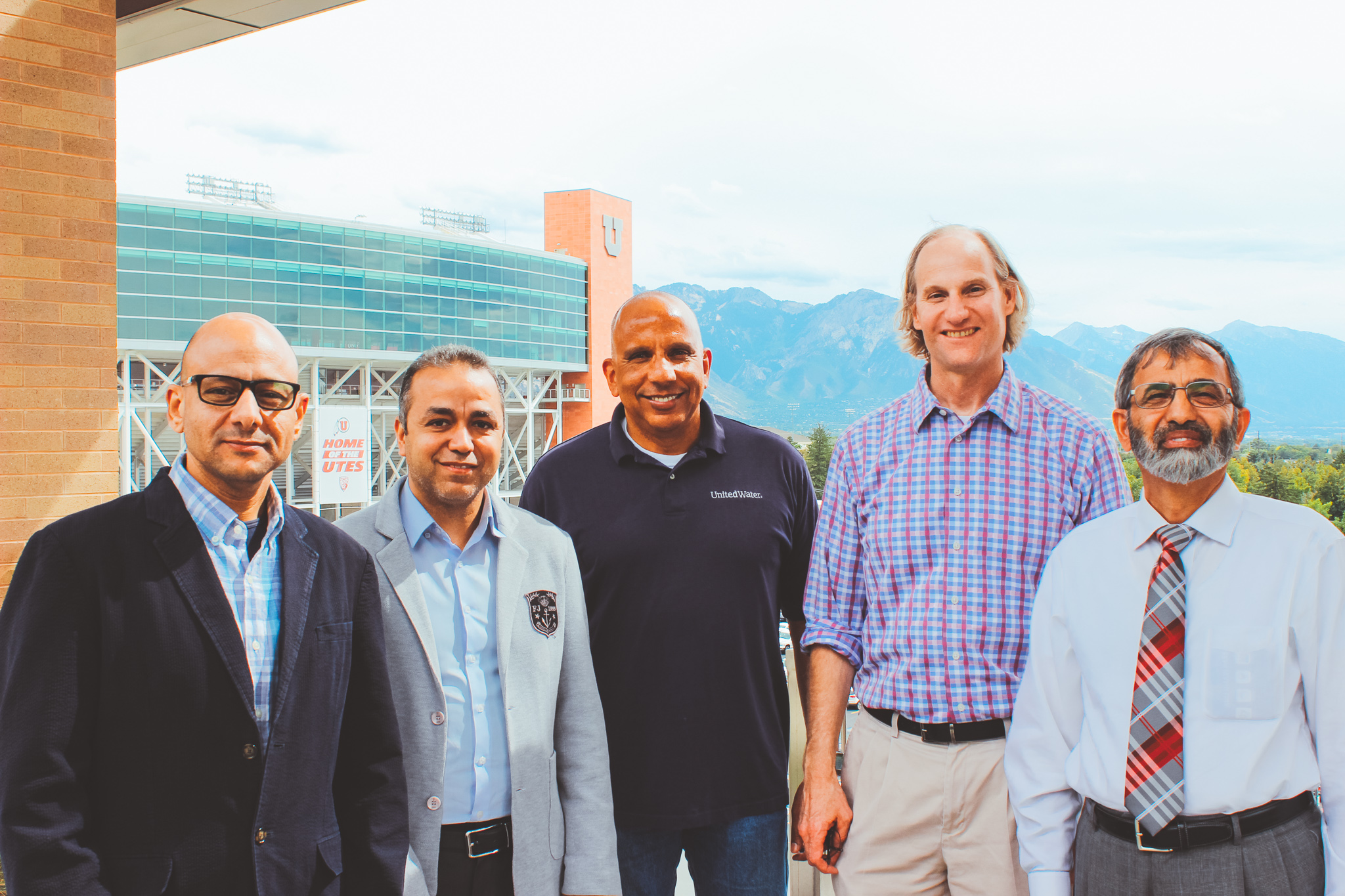
"I anticipate that the work and results from this small project will be a win-win situation for agricultural producers as well as policy makers in Egypt and may lead to large scale national research projects in Egypt." - Fulbright Alumni Professor Lal Almas
Food security in Egypt is threatened by limited water resources and shrinking arable agriculture land. Egypt and other countries in in semi-arid regions are trying to reclaim desert land to address food security needs. However, the critical challenge is finding suitable water quantity and quality to provide irrigation. The Binational Fulbright Commission in Egypt is supporting a collaborative project to investigate biosaline agriculture solutions.

The team of Fulbright Alumni, Drs. Mohamed Hazman and Mohamed El-Sayed from Egypt and Drs. Lal Almas and Mike McFarland from the U.S., are working with the project’s Principal Investigator, Dr. Steve Burian, and Egyptian consultant, Dr. Ali Shams El-din to study effects of saline groundwater on wheat and tomato crops, how the addition of soil amendments such as biosolids helps soil health and plant growth, and what is the feasibility, benefits, and consequences of expanding crop production in reclaimed desert lands. Dr. Mohamed Hazman is evaluating the response of tomato crop to saline irrigation water using the aspects of molecular biology, stress biology and physiology. The stressed plants have been extensively examined at the level of above ground shoot system and the hidden root system. It turned out that bio-saline agriculture could provide promising potentials for efficient and sustainable agriculture. In collaboration, Dr. Mohamed El-Sayed highlights the experience as the role of biochar as a soil amendment to reduce the saline water effect on wheat and soil properties and the productivity of wheat under drip irrigation system.
The Egyptian researchers visited the University of Utah Water Center in the fall of 2019 to closely work with the U.S. Fulbright Alumni and Principal Investigator, Dr. Steve Burian, to develop the integrated research project, define project outcomes and impacts, and plan the stakeholder engagement events. The team develop a project to focus on biosaline agriculture bringing together the experimental, economic, and systems analysis considerations and strengths of the team.

To date, Drs. Hazman and El-sayed have conducted experiments at their research institutes, AGERI and SWERI, respectively, to determine crop productivity implications from irrigating with saline water and to quantify the potential benefits of adding biochar to the soil. Investigating wheat, Dr. El-sayed discovered that the biochar enhanced the wheat productivity under irrigation with saline water as well reduced the saline water effect on soil properties and nutrients availability. While investigating tomatoes, Dr.While investigating tomatoes, Dr. Hazman found that used concentration of salt (NaCl, as the main dominant salt in saline groundwater) led to a reduction in vegetative and root traits. Nevertheless, the quality and quantity of the fruits still supporting the possibility to use low to moderate saline water (not more than 3000 ppm) for successful practicing of bio-saline agriculture. The results from the experiments are being compiled into publications to be submitted in 2020.


The Fulbright Alumni from the U.S. have been actively providing feedback regarding the experiments and providing contributions and extension to the work. Dr. Lal Almas from West Texas A&M University has been investigating the economic ramifications of modified crop production when using saline groundwater for irrigation. Dr. Almas' preliminary work has determined that bio saline agriculture for wheat production in Egypt will be a step forward to not only increase wheat production but also help in reducing Egypt's heavy reliance on imported wheat. In other preliminary work, Dr. Mike McFarland, from Cache Environmental Laboratories in Utah, has been investigating soil amendment requirements and considering the cost-benefit tradeoffs of bringing the beneficial soil amendments to scale.


To bring the work together and answer broader research questions, Principal Investigator Dr. Steve Burian, is developing a system dynamics model of the agriculture-water system encompassing the reclaimed desert lands in Egypt. The structure and organization of the sub-systems being modeled have been defined and data/information is currently being compiled to incorporate functions, parameters, and relationships into the model. The model will be able to help bridge the science-policy gap by analyzing long-term synergies and tradeoffs of using saline groundwater and soil amendments to increase agriculture productivity in reclaimed desert lands in Egypt.
To engage the stakeholder community and receive feedback from experts, the team is organizing an expert dialogue in 2020 and has planned an international conference in 2021 to bring together the thought leaders, stakeholders, and researchers to broader perspectives on the state of the issue.
Anticipated impacts from the project experience are expected to help advance the use of saline groundwater leading to increased crop productivity and improved management of scarce water resources. Dr. Almas reflected on the impact of this project and his experience as a Fulbright alumnus, "I anticipate that the work and results from this small project will be a win-win situation for agricultural producers as well as policy makers in Egypt and may lead to large scale national research projects in Egypt".
For information about the project, visit the Egypt Food Security website.

